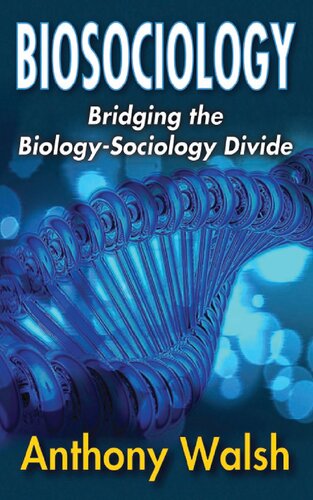

Most ebook files are in PDF format, so you can easily read them using various software such as Foxit Reader or directly on the Google Chrome browser.
Some ebook files are released by publishers in other formats such as .awz, .mobi, .epub, .fb2, etc. You may need to install specific software to read these formats on mobile/PC, such as Calibre.
Please read the tutorial at this link. https://ebooknice.com/page/post?id=faq
We offer FREE conversion to the popular formats you request; however, this may take some time. Therefore, right after payment, please email us, and we will try to provide the service as quickly as possible.
For some exceptional file formats or broken links (if any), please refrain from opening any disputes. Instead, email us first, and we will try to assist within a maximum of 6 hours.
EbookNice Team

Status:
Available4.3
9 reviewsAnthony Walsh bridges the divide separating sociology from biology―a divide created in the late nineteenth century when sociology emerged from the fields of social theory and philosophy. Walsh focuses on the viewpoint held by former American Sociological Association president Douglas Massey: sociologists have allowed the fact that we are social beings to obscure the biological foundations upon which our behaviour ultimately rests.
Walsh argues that sociology has nothing to fear and a wealth of riches to gain if it pays attention to the theories, concepts, and methodologies of the biological sciences. Both study the same phenomena. Beginning with an examination of the reasons why we need a biosocial approach, Walsh explores sociology's traditional "taboo" concepts (reductionism, essentialism, etc.) and how those concepts are viewed in the natural sciences.
Throughout the work, the author introduces relevant concepts from genetics and the neurosciences, using examples that will appeal to all sociologists. Later chapters apply his introductory arguments to traditional substantive sociological issues such as culture, crime, gender, socialization, social class, and the family. This book will be essential to all sociologists, evolutionary biologists, and scholars interested in the history of this important divide between the fields and where it currently stands.